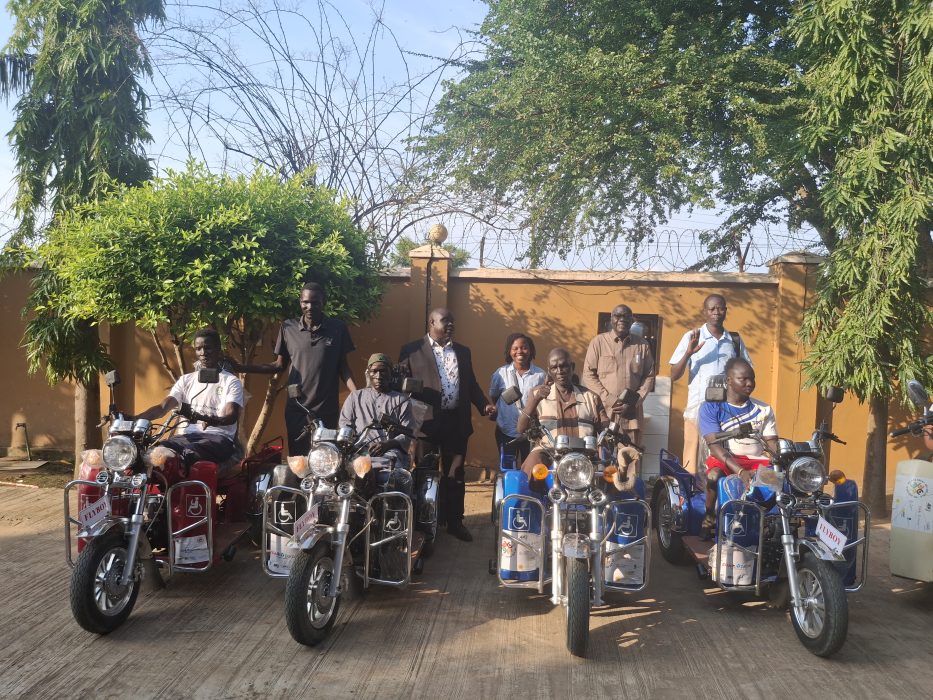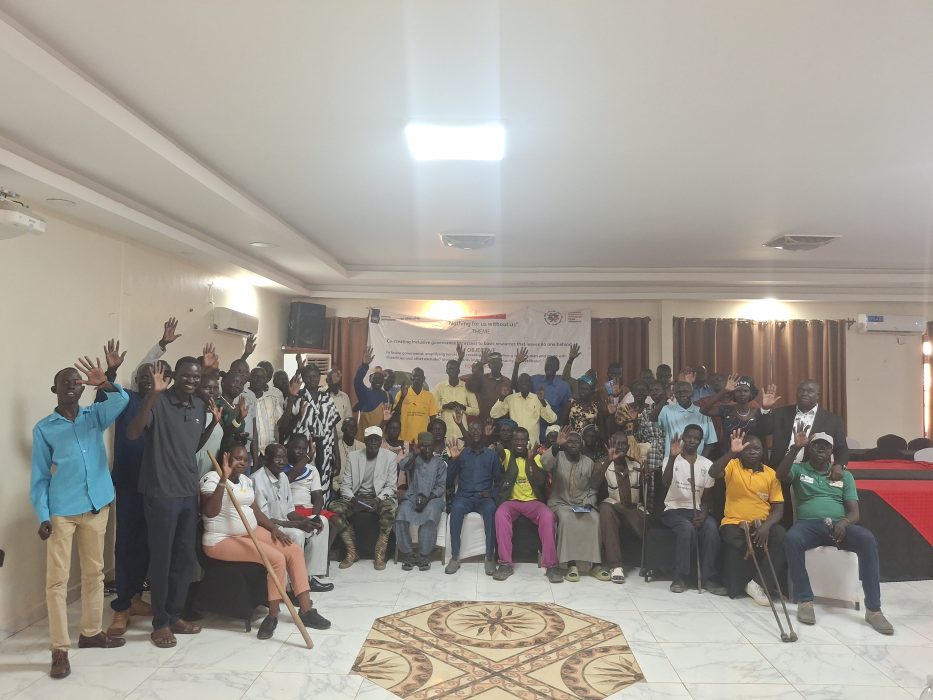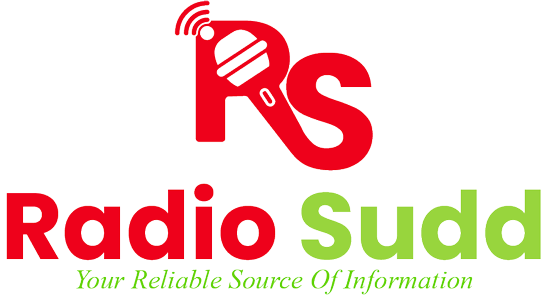
By Deng Ghai Deng
Bor, South Sudan – September 4, 2025
Bor, South Sudan – September 5, 2025
The non-profit organization ZOA Dorcas, in Consortium Partnership with Light for the World, ADF, VNGI and The Haque Academy for Local Governance, donated four triple-wheel motorbikes to individuals with physical impairments on Thursday in Bor. The donation followed a one-day workshop attended by community leaders and government representatives to evaluate the five-year “We Are Able” project, which is ending this Year on 31st December 2025.
Funded by the Ministry of Foreign Affairs of the Netherlands, the project focused on promoting the rights of persons with disabilities and increasing their access to inclusive food security and Livelihood. The workshop provided a platform for stakeholders to share experiences and reaffirm their commitment to disability inclusion, as confirmed by the ratified rights of Persons with disabilities in the UN-Convention.
Speaking at the handover event, Ajah Makuei Kur, who represented ZOA Dorcas, emphasized the broader impact of the donation.
“These tricycles are not just vehicles—they are a symbol of freedom, dignity, and inclusion. We hope they empower the recipients to take control of their lives and become even more active in their communities, – advocating and lobbying on the rights of persons with disabilities,” said Ajah.
The motorbikes are expected to significantly improve the daily lives of the beneficiaries, many of whom previously relied on others for mobility.
Malith Maguak Nyok, a member of the Jonglei Legislative Assembly and one of the beneficiaries, expressed his gratitude. “With this tricycle, I will be able to move independently and fulfill my legislative duties more effectively. It’s more than transportation—it’s a tool for advocacy,” Malith stated.
Ayuen Kuol Ateny, another recipient, highlighted how the motorbike would help him amplify the voices of people with disabilities in his village. “This support means I can now reach more people and raise awareness about our rights as persons with disabilities. It gives me strength and a platform to speak out,” Ayuen said with a smile.
Community leaders welcomed the initiative, commending the joint effort to place disability rights at the center of development programs. They also called for sustainable efforts to ensure long-term impact.
Simon Manyok Deng, Jonglei State Advisor on Human Rights Affairs, encouraged people with disabilities to assert their rights and report any forms of abuse.
“We want to send a clear message: no one should suffer in silence. Every person, regardless of their ability, deserves justice and equal protection under the law,” said Manyok. “The law does not discriminate. Let us work together to create a society where everyone is valued.”
As the project nears its end, Country Consortium Coordinator Mr. Taban Richard Sarafin urged a continued commitment to creating an inclusive society. His message echoed the powerful slogan, “Nothing for us without us.”
As the “We Are Able” project wraps up, stakeholders urged continued investment and collaboration to build on its successes and keep the momentum for inclusive development alive.
The “We are Able!” project is a five-year program funded by the Dutch Ministry of Foreign Affairs that aims to empower people with disabilities and other excluded groups, particularly those facing food insecurity in areas affected by conflict. The main goal is to strengthen their voices and resilience, enabling them to advocate for their rights and achieve a sustainable and secure place in their communities.
The project works in six African countries: Burundi, DR Congo, Ethiopia, South Sudan, Sudan, and Uganda. It is a collaborative effort involving a consortium of six organizations, including ZOA, the African Disability Forum, SeeYou Foundation, VNG International, The Hague Academy for Local Governance, and The Leprosy Mission.

